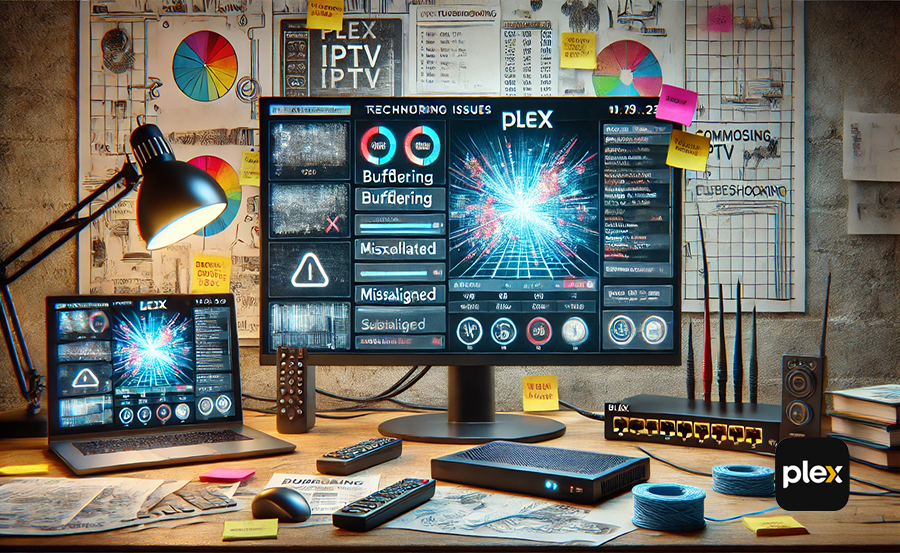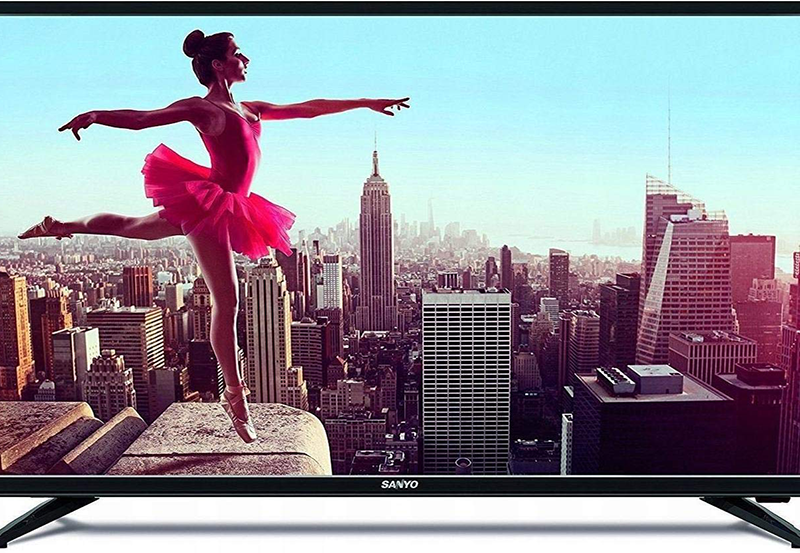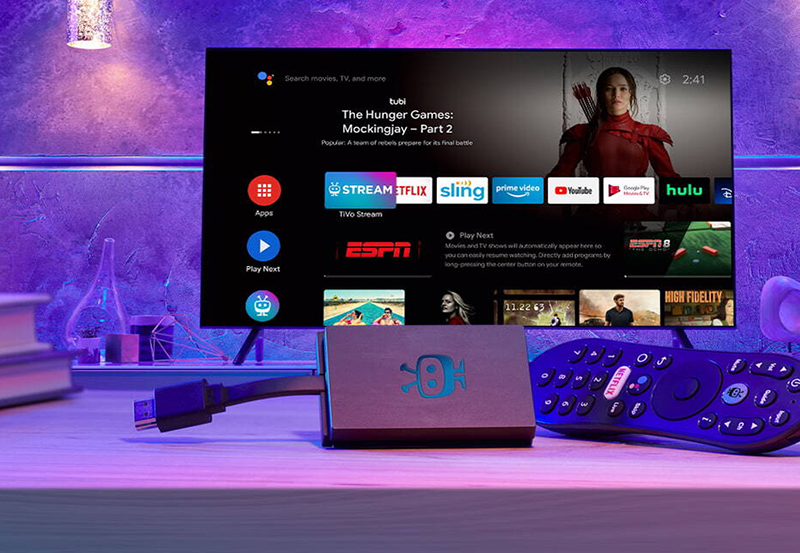For sports enthusiasts, nothing compares to the thrill of watching your favorite team play live. IPTV Sports offers an unparalleled viewing experience by bringing all your favorite games right to your screen, no matter where you are in the world. However, technical glitches can disrupt this seamless experience. In this article, we’ll explore how you can enhance your Plex IPTV experience by steering clear of the top five technical errors that users often encounter.
Understanding the Importance of Reliable IPTV Connections
Before diving into the technical nuances, it’s crucial to comprehend why a steady IPTV connection is essential. IPTV Sports provides live streaming that depends heavily on an uninterrupted internet connection. A robust connection ensures that the high-definition video streams smoothly, offering an experience as enjoyable as watching it live on television.
Many users encounter problems because they overlook the demands that IPTV places on their internet service. Without adequate bandwidth, buffering issues can become a nightmare. To enjoy a glitch-free experience, assess your internet speed and consider upgrading if necessary. Cheap IPTV for sports might save some cash, but ensure it doesn’t compromise quality.
Pro Tip:
Discover the ultimate entertainment solution with 7 Days FalconTV Subscription designed just for you.
The Role of Bandwidth in IPTV Efficiency
Bandwidth is the key player when it comes to IPTV efficiency. High-speed internet is like the cornerstone of your streaming setup. If you don’t have it, everything else could collapse into chaos. Many experts suggest a minimum of 10 Mbps for a single 1080p stream, but for 4k, think in terms of 25 Mbps or more.
It’s not just about speed but also stability. Consistent speed keeps your streams consistent. You don’t want drops in quality mid-match. Consider talking to your ISP about your needs to ensure you’re getting the best possible service.
Tips to Enhance Your Internet Setup
- Use a wired Ethernet connection instead of Wi-Fi whenever possible to reduce interference.
- Upgrade your wireless router if it’s more than a couple of years old.
- Consider powerline adapters if running an Ethernet cable is not feasible.
Optimization of Plex Settings for IPTV Sports Viewing
Using Plex as your IPTV player can significantly enhance your viewing experience, but only when configured correctly. Plex is known for its versatile media management capabilities, but incorrect settings can hinder performance.
One common error is failing to adjust the streaming quality settings according to your network capacity. If your settings don’t match your network capability, you might face buffering issues or pixelated streams. IPTVSports fans should take note of this for the best viewing engagement.
Adjusting Plex for Performance
Start by accessing Plex’s settings menu and navigating to the suiting video quality option. It allows users to choose between original quality or optimized streaming, depending on available bandwidth. Setting this correctly balances quality and performance.
Another tip is adjusting the transcoder settings. This can prevent unnecessary conversion of video files, which can be a load on your system. Ensure hardware acceleration is enabled if your server supports it.
Essential Plex Tweaks for Smoother Streams
- Enable hardware acceleration under Transcoder settings.
- Limit background tasks during important matches to maximize available resources.
- Adjust the streaming quality to match your internet speed dynamically.
Preventing Buffering: The Silent Stream Killer
Buffering can be akin to an arch-nemesis for any IPTV devotee. Most viewers have struggled with sudden lags or pauses in the middle of an adrenaline-pumping match. While it might seem inevitable, understanding why buffering occurs is the first step to preventing it.
Buffering is primarily caused by a discrepancy between data being received and processed. This could be due to slow internet speeds or an overwhelmed server trying to handle too many tasks at once. The key is identifying where this bottleneck occurs.
Proactive Measures Against Buffering
Starting with the basics, always ensure your internet connection is up to par. For IPTV Sports, this couldn’t be more crucial. Regularly test your internet speed using online tools and address any issues with your ISP immediately.
Beyond internet speed, consider the number of devices connected to your network. Multiple devices streaming at once can consume more bandwidth than expected, leading to buffering. Limiting concurrent streams during critical game hours might be necessary.
Techniques to Minimize Stream Interruptions
- Adjust your Wi-Fi channel to avoid interference from neighboring networks.
- Utilize Quality of Service (QoS) settings on your router to prioritize IPTV traffic.
- Schedule software updates for non-peak times to free up bandwidth.
Navigating the Complex World of IPTV Add-ons
IPTV add-ons can enhance your Plex experience by offering additional features or better visual quality. However, it’s important to be cautious. Installing too many add-ons or choosing incompatible ones can cause more harm than good.
Choosing the right add-ons requires some research. Be sure to read reviews and confirm compatibility with your version of Plex. The last thing you want is an add-on that conflicts with other essential services, leading to crashes or disrupted streams.
Smart Choices: Selecting Reliable IPTV Add-ons
When it comes to IPTV Sports, some add-ons can provide superior coverage of different sports events, ensuring you never miss a game. However, not all add-ons are created equal. Look for those with a strong track record of performance and regular updates.
Additionally, consider community feedback. User reviews can provide insights into potential issues like slow updates or compatibility problems. Additionally, ensure that the add-on aligns with your viewing preferences and technical setup.
Steps to Safely Integrate Add-ons
- Research and choose add-ons with positive feedback and regular updates.
- Back up your current configuration before installing new add-ons.
- Avoid multiple add-ons with overlapping functionalities.
Maintaining System Updates and Device Health
Maintaining your devices and keeping your software up to date is often overlooked but crucial for maintaining optimal performance. Failing to update can lead to compatibility issues, security vulnerabilities, and performance lapses, directly impacting your IPTV Sports experience.
Device health is just as important. Neglecting this aspect can result in sudden failures at the worst times. Regular device check-ups and cleaning can prevent these interruptions and keep your setup running smoothly.
The Necessity of System Updates
Updates can appear as minor tweaks, but they often contain critical improvements or patches. Make it a habit to check for updates regularly, especially for your IPTV software and streaming devices. Set devices to install updates automatically when possible.
For hardware, frequent system checks and maintaining a clean and dust-free environment can prolong the life of your devices. Consider setting up a routine for inspections and maintenance to keep everything in top condition.
Best Practices for Device Maintenance
- Regularly clean your devices to prevent dust buildup which can affect cooling and performance.
- Check and update firmware and software regularly to minimize bugs and security risks.
- Secure backups of your configurations and settings to swiftly recover in case of unexpected failures.
Final Thoughts: Pursuing the Ultimate Viewing Experience
We all thrive on the experience of watching sports in high quality. By identifying and avoiding common errors, you can ensure that your IPTV Sports service works without a hitch, keeping you at the heart of the action without the stress.
Invest a bit of time in setting things up correctly, and you’ll undoubtedly enjoy the payoff. From ensuring reliable internet speeds to maintaining your devices properly and choosing the right add-ons, these steps are integral to a seamless viewing experience.
IPTV Sports FAQ

What is the best way to prevent buffering with IPTV Sports?
To prevent buffering, ensure you’re using a high-speed internet connection and optimize your router settings using QoS to prioritize IPTV traffic. Additionally, minimize the number of devices that share the same network during streams.
Do I need specific hardware to use IPTV Sports with Plex?
While specific hardware isn’t required, a device capable of handling high-definition content is recommended. This includes a modern computer, smart TV, or streaming box with good processing power and ample memory.
Can add-ons interfere with my Plex IPTV performance?
Yes, certain add-ons can conflict with Plex’s operation, causing crashes or performance issues. Opt for well-reviewed add-ons and avoid overlapping functionalities to minimize the risk of interference.
How often should I update my IPTV software and devices?
Regular updates are important to stay compatible with new features and security protocols. Check for updates monthly and allow automatic updates when possible to ensure optimal performance and security.
What’s the ideal internet speed for an IPTV Sports subscription?
For standard high-definition streams, you’ll typically need at least 10 Mbps. For 4K streaming, 25 Mbps or more is advisable. Test your connection frequently to make sure it can handle the load comfortably.
How To Fix IPTV Disconnects: Avoiding Frustration with Simple Steps



